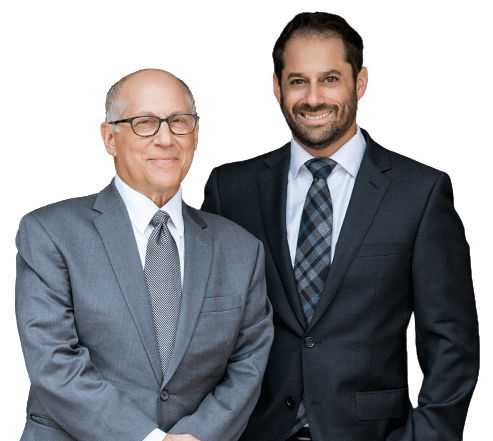If you’ve ever been in a car accident you know firsthand how scary they can be. Oftentimes there’s so much going on around you that it can be easy to operate solely on adrenaline, rather than being present in the moment. If there’s one thing you should remember to do, however, it’s documenting your injuries—it will only help you in the long run.

Below are steps to guide you through what to do after a car accident injury.
- First things first, take pictures of the entire car accident and any injuries.
- Seek medical attention.
- Schedule a visit with your primary care doctor.
- Keep record of all medical visits, accident reports and insurance claims.
- Continuously take notes of symptoms, changes, etc.
- Update your car accident injury attorney.
First things first, take pictures of the entire car accident and any injuries.
That means everything. Taking pictures of your major injuries is crucial, but photographing everything from your car’s damage down to even the smallest of scrapes on your body is just as important. Real-time photographic evidence at the scene of the accident will not only jog your memory later when it comes to recalling the event, but it will also give you credibility if/when the case is taken to court. Don’t worry about having a nice camera on hand, a cell phone camera will work just as well.
Seek medical attention.
Your health and safety are of course the number one priority. This step should always come prior to taking photos if your injuries need immediate attention. Even if you think your injuries are minor, however, it’s still crucial to seek medical attention as soon as possible and have an expert assess you. Some symptoms can take up to weeks or even months before they appear after an accident, so do not underestimate the extent of your injuries.
Regardless if you were able to take pictures of your injuries at the scene of the crime or not, asking a doctor to take pictures of your injuries is still a necessary step. Not only are these injuries still fresh from the incident, but the doctor can also indicate which injuries you will need to watch for further changes.
Schedule a visit with your primary care doctor.
Your primary care doctor knows your medical history better than anyone else. Scheduling a visit with him/her immediately following your emergency room visit (or as soon as possible) is your best bet for obtaining all necessary records of medical care. He/she can also help indicate which injuries need careful watch.
Keep record of all medical visits, accident reports and insurance claims.
This step is the most important and should not be overlooked. Records provide undeniable evidence that will stand up in court. From your first visit to the emergency room following the accident to subsequent check-ups, ask for, and keep, any and all medical records. It’s best to keep both hardcopies and electronic copies of these records so you have physical proof in multiple forms. Even if you don’t think the assessment is worthy of documentation, you never know what will be important down the road.
Continuously take notes of symptoms, changes, etc.
Again, some symptoms can take weeks or even months to fully appear after an accident occurs so document every feeling, symptom and/or change. Use this space as a timeline for documenting important incidences (i.e. when you first visited the hospital, when you saw your doctor, how you felt during each visit and any changes you’ve noticed in yourself, physically, emotionally and psychologically).*
*Emotional or psychological changes can include a sudden spike of anxiety regarding the incident, trouble sleeping and any other changes that you did not experience prior to the incident.
Update your car accident injury attorney.
If the case goes farther, it’s important that whoever is representing you has all of the facts: doctor’s visits, medication taken, symptoms felt, changes in injury or behavior, even the amount of days of work you missed after the incident, if that happens. The more information they have the better.
Injured during a motor vehicle accident? Check out these other blogs on motor vehicle accidents:
- How to handle accidents inside construction zones
- What happens if you’re in a car accident with someone who’s uninsured?
- What happens when you’re in a car accident at work?
- What to do if you’re injured on a motorcycle
About the author: Brandon Duber, a Partner with Bentoff & Duber Co., LPA, is a lawyer with proven experience in the courtroom and expertise in the areas of workers’ compensation, criminal defense, personal injury and medical malpractice law. He received his B.A. from Skidmore College in Saratoga Springs, NY and his J.D. from The Case Western Reserve University School of Law in Cleveland, OH.

